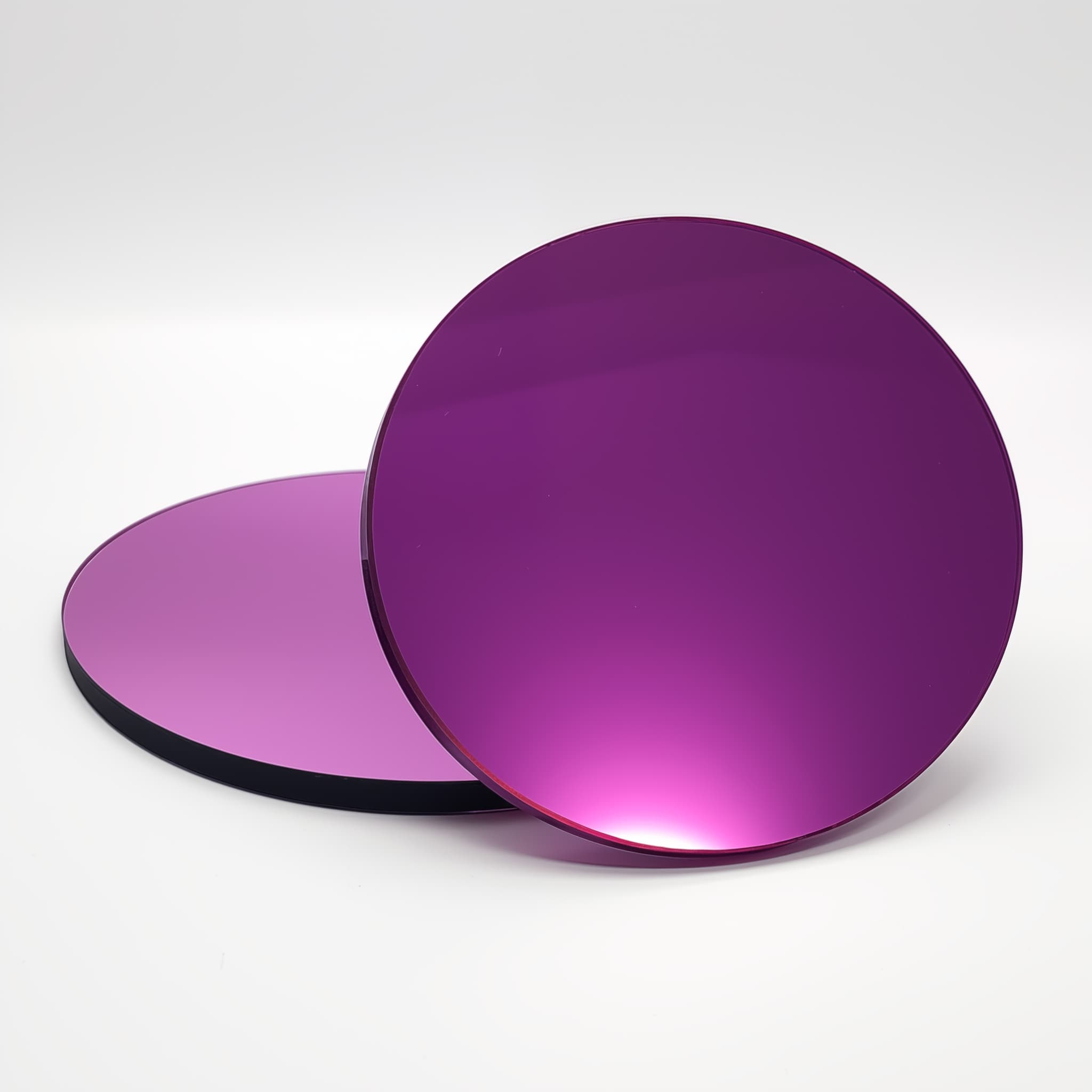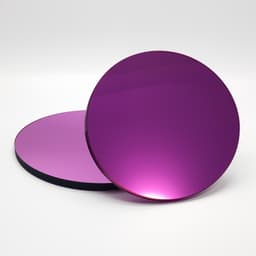


Brewster Type Thin Film Plate (TFP) Polarizers with High Contrast
Brewster angle TFP polarizers can achieve even higher contrasts when splitting s and p polarizations. You can choose from wide range of materias (angles) and customize TFP characteristcs: shapes, sizes, extinction ratios, LITD, ...
Estimated Shipping Date: January 27, 2026 - February 10, 2026
* - Shopping cart pricing is based on the most recent pricing and it is NOT ORDERING, but requesting an official quotation which should typically reach You within 1-2 business days.
- Description
- Applications
- Characteristics
Brewster-type Thin Film Polarizers (TFP): production and alternatives
How brewster's ange TFP polarizers are produced ?
Brewster's TFP manufacturing process is a multi-step process (quite similar to other dielectric coated optics)
-
Material selection. Based on properties (transmittance, hardness, brewster angle, etc.) material is choosen for substrate.
-
Polishing. Material is sliced, grinded and smoothly polished. Alien photonics can achieve good reflected and transmitted wavefront distortion which is crutial for efficient TFP polarizer.
-
Optical coating. The polarizing coating is applied on substrate. IBS or MS coating is used for high contrast polarizers, while EBE, IAD for more economical solutions.
-
Quality assurance and testing. Once brewster's TFP is finished, it is inspected and stocked or shipped to customer.
Brewster's TFP polarizer alternatives
PBS cubes
Standard, High Energy, broad-band PBS cubes with some adjustments within optical sytem can replace brewster's TFP polarizer. However, it is not always possible, since cubes have larger GDD, and some LIDT issues might occur due to cement.
Brewster windows
Optical windows designed for brewster's angle can be used in cases where only tranmitted (p-pol) is needed. S-polarization however will not be controlled or maintained.
45 deg polarizer
Brewster's polarizer, can be changed with 45 deg. TFP polarizer, with minimal adjustments. In laser systems, this option is more favorable (due to the same incidence angle) than replacing brewster's TFP with PBS cube.
Brewster's TFP polarizers for Nd:YAG, YB:YAG, Ti:Sapphire other solid state and fiber lasers
Alien Photonics Brewsters thin film plate (TFP) polarizers are used in variety of applications, such as spectroscopy instruments, astronomical observations, precision metrology, microscopy. Most popular application is lasers, lets review most popular wavelengths for brewsters TFP polarizers:
1064 nm Brewster's TFP polarizer
In laser systems, such as those using 1064 nm Nd:YAG lasers, Alien Photonics brewster's polarizers are key for protecting delicate laser components. Brewster's angle polarizers are preferred for their efficiency in reflecting undesired polarization states while transmitting the desired one with negligible loss.
532 nm Brewster's TFP polarizer
Alien Photonics Brewster's TFP polarizers are used in laser systems with 532 nm green laser beams. At Brewster's angle TFP polarizers maximize transmission efficiency while ensuring high polarization purity. This is crucial for applications requiring precise beam quality, such as medical diagnostics and laser projection systems, where Brewster's angle provides optimal polarization with minimal absorption.
355 nm Brewster's TFP polarizer
TFP polarizers at Brewster's angle are adept in transmitting p-pol. of 355 nm UV light, making them indispensable in the semiconductor manufacturing process for tasks like precision microfabrication. The polarizers' ability to maintain high polarization purity at Brewster's angle ensures that UV lasers operate at peak performance with reduced thermal impact.
266 nm Brewster's TFP polarizer
In UV lithography and inspection systems, TFP polarizers at Brewster's angle optimize the use of 266 nm deep UV light by transmitting it with enhanced polarization purity. This precise polarization control, achieved by aligning the polarizers at Brewster's angle, is critical for achieving sub-micron feature sizes in electronics fabrication, enabling the production of advanced semiconductor devices with higher densities and performance.
1030 nm Brewster's TFP polarizer
Thin Film Plate (TFP) polarizers at Brewster's angle transmit 1030 nm light with exceptional polarization purity, essential for fiber laser systems used in precision cutting and welding. The use of Brewster's angle minimizes reflection losses and optimizes the laser beam's quality, ensuring maximum efficiency and precision in industrial manufacturing applications.
515 nm Brewster's TFP polarizer
By polarizing 515 nm light with high efficiency, Alien Photonics TFP polarizers significantly improve the contrast and clarity of images in fluorescence microscopy. Enhanced transmission of p-polarized light is crucial for illuminating biological specimens with minimal distortion, thereby enabling detailed cellular and molecular observations.
343 nm Brewster's TFP polarizer
TFP polarizers at Brewster's angle efficiently polarize 343 nm UV light (a key wavelength for advanced scientific and medical research applications). Brewster's angle enhances the polarizer's transmission efficiency and polarization purity, crucial for applications such as high-resolution microscopy and photodynamic therapy. This precise polarization control allows researchers to conduct detailed studies and treatments with improved specificity.
1550 nm TFP polarizers
In fiber-optic communications, these Alien Photonics brewster's polarizers are critical for polarizing 1550 nm infrared signals, enhancing signal-to-noise ratio and bandwidth. Brewster's angle is specifically chosen to minimize loss and reflection in the transmitted polarized light, ensuring reliable, high-quality data transmission.
Characteristics and specifications of Brewster-Type Thin Film Plate Polarizer
| Characteristics | Typical Value |
|---|---|
| Substrate Characteristics | Value |
| Substrate material | UVFS, ZnSe, CaF₂, N-BK7, ... |
| Diameter tolerance | +0.0 / -0.15 mm |
| Thickness tolerance | ±0.1 mm |
| Protective chamfers (bevels) | <0.25 mm x 45° |
| Flatness | λ/10 @ 632.8 nm (per C.A.) |
| Surface quality | 10-5 S-D (acc. to MIL-PRF-13830B) |
| Coating Characteristics | Value |
| Clear Aperture (C.A.) | >85%; >100% |
| Extinction Ratio (Tp/Ts) | >3000:1; >1000:1; >500:1; >200:1 |
| Laser Induced Damage Threshold (LIDT) | >10 J/cm² @ 1064 nm, 10 ns, 10 Hz |
| Certificate | Availability |
| Certificate of Conformance (COC) | Yes. Available upon request. |
| RoHS | Yes. Available upon request. |
| Conflict minerals | Yes. Available upon request. |